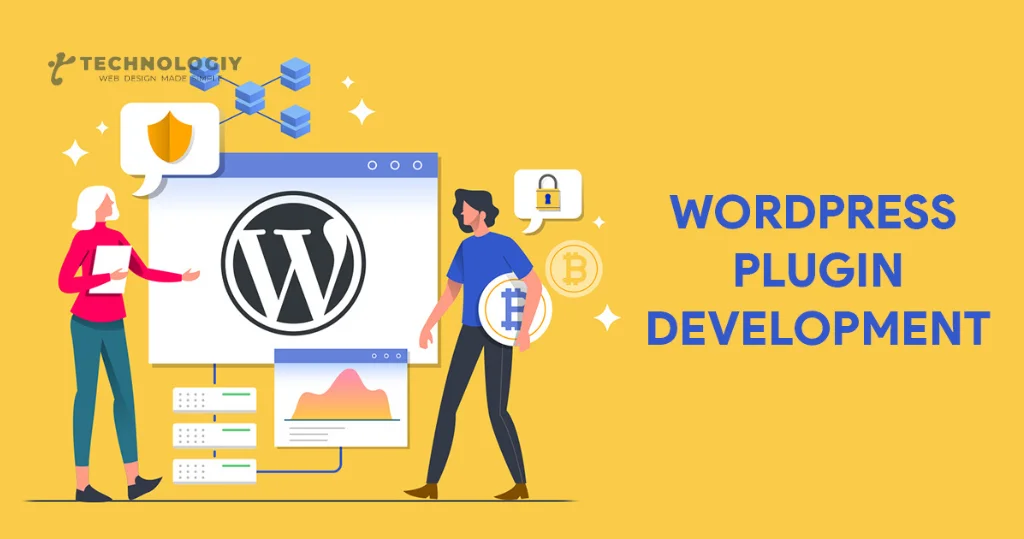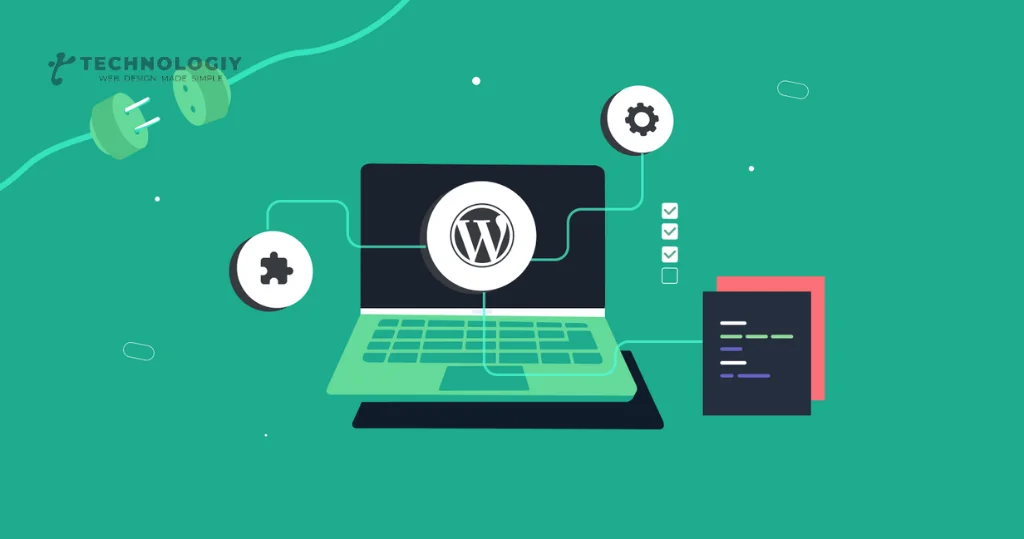10 Essential Tips for Successful WordPress Plugin Development: Are you looking to dive into the world of WordPress plugin development? Congratulations! You’re about to embark on an exciting journey that allows you to bring your creative ideas to life and enhance the functionality of WordPress websites. Whether you’re a seasoned developer or just starting out, our team at HutVolt has compiled a list of 10 essential tips to help you succeed in WordPress plugin development. Cool off with your preferred drink, take a comfortable seat, and let’s embark on this journey!
Plan Ahead:
Before you start coding your plugin, take the time to plan out its features, functionality, and target audience. This will help you stay focused and ensure you’re building a plugin that people actually need.
Keep It Simple:
Remember the KISS principle – Keep It Simple, Stupid! Don’t overwhelm your users with complex features and options. Instead, aim for simplicity and a user-friendly interface that allows even beginners to use your plugin without any hassle.
Follow WordPress Coding Standards:
WordPress has its own coding standards for plugins, and it’s crucial to adhere to them. By following these standards, you’ll ensure your plugin is secure, compatible with other themes and plugins, and follows best practices.
Test, Test, Test:
Thoroughly test your plugin on different versions of WordPress, various browsers, and different devices. This will help uncover any bugs or compatibility issues and ensure your plugin works seamlessly for all users.
Optimize Performance:
Nobody likes a slow website, so make sure your plugin doesn’t contribute to sluggish load times. Optimize your code, minimize database queries, and use caching techniques to ensure your plugin operates efficiently.
Provide Regular Updates:
WordPress is constantly evolving, and so should your plugin. Keep up with the latest WordPress updates and release regular updates for your plugin to ensure compatibility and security.

Offer Excellent Support:
Great support can make or break a plugin’s success. Be responsive to user inquiries, provide detailed documentation, and consider creating a support forum or knowledge base to assist users with any issues they may face.
Secure Your Plugin:
Security is paramount in plugin development. Follow WordPress security best practices and regularly update your plugin to address any vulnerabilities or threats.
Optimize for SEO:
Make sure your plugin is search engine friendly by optimizing its code, adding relevant meta tags, and ensuring compatibility with popular SEO plugins. This will help your users improve their website’s visibility and rankings.
Promote Your Plugin:
Don’t forget to promote your plugin! Leverage social media, guest blogging, and other marketing channels to spread the word about your awesome creation. Engage with the WordPress community, showcase your plugin’s unique features, and encourage users to leave positive reviews.
With these 10 essential tips, you’re well on your way to developing successful WordPress plugins. Remember, Rome wasn’t built in a day, so take your time, stay persistent, and continue learning. Happy coding!
Disclaimer: HutVolt is not responsible for any mishaps or issues that may arise during your WordPress plugin development journey. These tips are meant to provide guidance and best practices for beginners and experienced developers alike.
How to Choose the Right Framework for Your WordPress Plugin Development Introduction:
Welcome to HutVolt, your go-to guide for WordPress plugin development! If you’re a developer looking to create amazing plugins for WordPress, you’ve come to the right place. In this blog post, we’ll dive into the importance of choosing the right framework for your WordPress plugin development journey. So, let’s get started!
Why is Choosing the Right Framework Important?
When it comes to WordPress plugin development, choosing the right framework is crucial. A framework acts as the foundation for your plugin, providing you with a set of tools, libraries, and functionalities that simplify the development process. With the right framework, you can save time, improve efficiency, and create high-quality plugins that meet the needs of your users.
Considerations for Choosing the Right Framework:
Compatibility with WordPress:
Make certain that the selected framework aligns seamlessly with the most up-to-date WordPress version. This compatibility will guarantee a seamless integration of your plugin with the WordPress ecosystem, reducing the chances of conflicts and compatibility issues.
Community Support:
Opt for a framework that has an active and supportive community. A vibrant community will provide you with valuable resources, documentation, and assistance when you need it. Engaging with fellow developers will also help you stay updated with the latest trends and best practices in WordPress plugin development.
Flexibility and Customizability:
Look for a framework that offers flexibility and customizability. Different plugins have different requirements, and a flexible framework will allow you to tailor your plugin according to your needs. The ability to extend and customize the framework will empower you to create unique and robust plugins.
Security:
Security is of utmost importance when it comes to plugin development. Choose a framework that prioritizes security and follows best practices to protect your plugin and its users. Look for frameworks that undergo regular security audits and have a track record of keeping plugins secure.
Performance:
Consider the performance implications of the framework you choose. A lightweight framework that follows coding standards and optimizes for speed will ensure that your plugin doesn’t slow down the websites it is installed on. Users value fast and efficient plugins, so choosing a performant framework is essential.
Documentation and Learning Resources:
Make sure the framework you choose has comprehensive documentation and learning resources. Well-documented frameworks provide clear instructions on how to use their features, making it easier for developers to understand and utilize them effectively. Learning resources like tutorials, guides, and forums are also valuable for enhancing your skillset.
Choosing the right framework for your WordPress plugin development is a vital step towards building successful and impactful plugins. Consider factors like compatibility, community support, flexibility, security, performance, and documentation when making your decision. At HutVolt, we are dedicated to helping developers like you create outstanding WordPress plugins. So, go ahead, choose the right framework, and start building remarkable plugins that enhance the WordPress experience for everyone!
Building a Profitable Business with WordPress Plugin Development:
Are you passionate about coding and looking for a way to turn your skills into a profitable business? Look no further! HutVolt is here to guide you on your journey to success with WordPress Plugin Development.
WordPress is the most popular content management system (CMS) in the world, powering over 35% of all websites on the internet. With such a large user base, there is a huge demand for custom WordPress plugins that enhance the functionality of websites.
Why Choose WordPress Plugin Development?
WordPress Plugin Development offers a world of opportunities for developers like you. Here’s why you should consider it as a business venture:
High-demand market:
As mentioned earlier, WordPress powers millions of websites, and businesses are always looking for ways to enhance their online presence. By developing plugins, you can cater to this ever-growing market and provide solutions that businesses need.
Flexibility:
WordPress Plugin Development allows you to work on your own terms. You can choose to work as a freelancer, offering custom plugin development services, or you can create and sell your own plugins on marketplaces like CodeCanyon. The choice is yours!
Passive income potential:
Once you’ve developed a plugin, you can sell it multiple times without any additional effort. This means you can earn passive income while focusing on new projects or improving existing ones.
Community support:
The WordPress community is vast and supportive. You can join forums, attend WordCamps, and network with other developers to learn from their experiences, gain insights, and collaborate on projects. This community support can be invaluable in your journey as a WordPress Plugin Developer.
Getting Started with HutVolt WordPress Plugin Development:
Comprehensive resources:
HutVolt provides a wide range of resources, tutorials, and guides to help you learn WordPress Plugin Development from scratch. Whether you’re a beginner or an experienced developer, you’ll find valuable content to enhance your skills and stay up-to-date with the latest trends.
Expert guidance:
Our team of experienced WordPress developers is dedicated to providing you with the expertise and guidance you need to succeed. From technical support to business advice, we are here to support you every step of the way.
Marketing and monetization strategies:
Building a profitable business goes beyond just developing plugins. HutVolt can help you with marketing strategies, pricing your plugins, and reaching your target audience effectively. We’ll equip you with the knowledge and tools to maximize your revenue potential.
Community engagement:
HutVolt believes in the power of collaboration and community. Join our exclusive community of WordPress Plugin Developers to connect with like-minded individuals, share ideas, and collaborate on projects. Together, we can achieve more!
WordPress Plugin Development offers an incredible opportunity to turn your coding skills into a profitable business. With HutVolt as your guide, you’ll have all the resources, support, and expertise you need to succeed. So why wait? Start your journey today and build a profitable business with WordPress Plugin Development. Remember, the sky’s the limit!
Disclaimer: HutVolt is not affiliated with or endorsed by WordPress or any of its subsidiaries.
